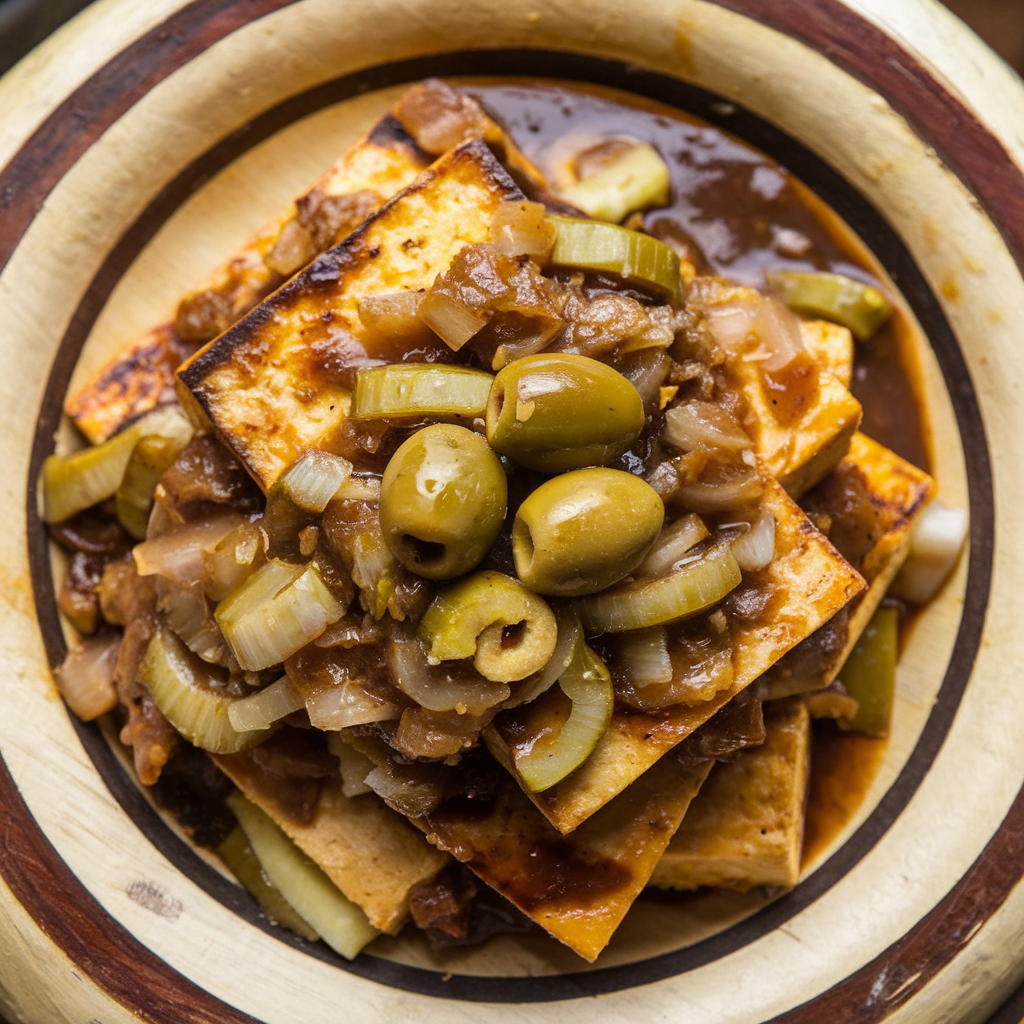
African cuisine is renowned for its rich flavours, vibrant colours and diverse ingredients, many of which are plant-based at their core. From the smoky undertones of jollof rice to the tangy depth of yassa chicken, these dishes hold cultural significance while tantalising the taste buds. However, with the rise of non-communicable diseases such as diabetes and hypertension, adopting a more plant-based diet has become increasingly important for overall health.
Interestingly, anthropological studies show that traditional African diets were once incredibly rich in fibre, with plant foods forming the majority of daily meals. By returning to plant-based eating, we can honour this legacy while promoting better health. In this post, we’ll explore how to veganise traditional African dishes without losing the bold flavours that make them so beloved.
Why Veganising African Dishes Makes Sense
1. The Health Connection
Historically, African diets were centred around fibre-rich grains, vegetables and legumes. Anthropological evidence suggests that early African communities thrived on foods such as millet, sorghum, beans and leafy greens. These plant-based staples provided essential nutrients, supported gut health and reduced the risk of chronic diseases.
In contrast, modern diets, influenced by globalisation and processed foods, have seen an increase in animal-based products and refined carbohydrates. This shift has contributed to the rise of non-communicable diseases. By veganising traditional dishes, we can return to nutrient-dense, plant-based eating that aligns with our ancestral roots and supports long-term health.
2. The Cultural Connection
African cuisine is inherently adaptable, with many dishes already featuring plant-based ingredients as their foundation. By focusing on these components, veganising recipes becomes less about removing meat and more about celebrating the flavours of grains, vegetables and spices.
Tips for Veganising African Dishes Without Losing Flavour
1. Embrace Spices and Seasonings
African cuisine owes much of its flavour to bold spices and herbs such as ginger, garlic, cumin and chilli. These ingredients are naturally vegan and can elevate plant-based versions of your favourite dishes.
- For a vegan yassa chicken, marinate tofu or tempeh in a mixture of onions, mustard, lemon juice and chillies. The tangy marinade is the star of this Senegalese dish and the plant-based protein absorbs these flavours beautifully.
- Use smoked paprika or liquid smoke to mimic the depth that meat often adds to dishes like jollof rice.
2. Replace Animal Proteins with Plant-Based Alternatives
Instead of meat, incorporate protein-rich legumes that hold up well in traditional dishes.
- Jollof Rice: Substitute diced mushrooms, chickpeas or jackfruit for chicken or fish. These ingredients absorb the tomato-based sauce and spices just as well, maintaining the dish’s hearty texture.
- Egusi Soup: Use tofu as a protein source in this Nigerian favourite, pairing them with spinach or kale for a nutritious, flavour-packed meal.
3. Highlight Fibre-Rich Ingredients
Reconnecting with fibre-rich staples like millet, sorghum and yam not only adds authenticity but also boosts the nutritional profile of vegan dishes.
- Replace refined white rice in dishes with fonio or millet for a wholesome twist. These ancient grains were once dietary staples across many African regions and offer a nutty flavour that complements stews and soups.
- Use beans or lentils in recipes like Ghanaian red-red, a classic bean stew traditionally served with fried plantains.
4. Experiment with Vegan Broths and Sauces
The base of many African dishes is a rich, flavourful broth or sauce, which can easily be made vegan.
- Replace meat stock with vegetable broth, enhanced with umami-packed ingredients like mushrooms or nutritional yeast.
- Thicken sauces for dishes like peanut stew with blended vegetables or add coconut milk for a creamy texture.
5. Recreate Traditional Textures
Texture plays a significant role in African cuisine and plant-based ingredients can mimic the chewiness or creaminess of meat and dairy.
- In yassa chicken, use firm tofu or seitan for a chewy, satisfying texture.
- For creamy dishes like Nigerian moi moi (steamed bean pudding), blend black-eyed peas with coconut milk instead of eggs to maintain the silky consistency.
Plant-Based Eating and the Fight Against Non-Communicable Diseases
Veganising traditional African dishes isn’t just about exploring new flavours; it’s also a step toward better health. Studies show that diets high in plant foods and fibre can help:
- Reduce Blood Pressure: A diet rich in vegetables and legumes provides potassium and magnesium, which support heart health.
- Lower Cholesterol Levels: Plant-based eating eliminates cholesterol from animal products while increasing intake of cholesterol-lowering fibre.
- Support Gut Health: High-fibre foods like beans and whole grains feed beneficial gut bacteria, improving digestion and immunity.
- Promote Weight Management: Plant-based diets are nutrient-dense and lower in calories, helping to prevent obesity—a major risk factor for chronic diseases.
By incorporating more plant-based versions of our beloved dishes like jollof rice or yassa chicken, we can enjoy the rich culinary heritage of Africa while supporting a healthier future.
3 Veganised African Recipes to Try Today
- Vegan Nigerian Jollof Rice
- Ingredients: Tomatoes, bell peppers, onions, rice, chickpeas, vegetable broth and spices (thyme, curry powder, smoked paprika).
- Method: Sauté onions, blend tomatoes and peppers into a smooth base and simmer with spices before adding rice and chickpeas.
- Tofu Yassa
- Ingredients: Tofu, onions, lemon juice, mustard, vegetable broth and chillies.
- Method: Marinate tofu in a tangy mustard-lemon mixture, then sauté with caramelised onions for a zesty, flavourful meal.
- Peanut Stew with Spinach
- Ingredients: Peanut butter, sweet potatoes, tomatoes, spinach and vegetable broth.
- Method: Combine peanut butter with broth and tomatoes to create a creamy base, then add sweet potatoes and spinach for a hearty dish.
Veganising traditional African dishes allows us to preserve the rich cultural heritage of African cuisine while prioritising health and sustainability. By embracing plant-based ingredients, bold spices and ancient grains, we can enjoy vibrant, flavourful meals that honour the past and promote wellness.
Whether you’re inspired by the smokiness of jollof or the tanginess of yassa, plant-based versions of these classics prove that vegan cooking doesn’t have to compromise on flavour. Ready to try veganised African recipes? Let us know your favourites in the comments!
Share this post with friends and family looking to explore healthier, plant-based takes on African classics.
